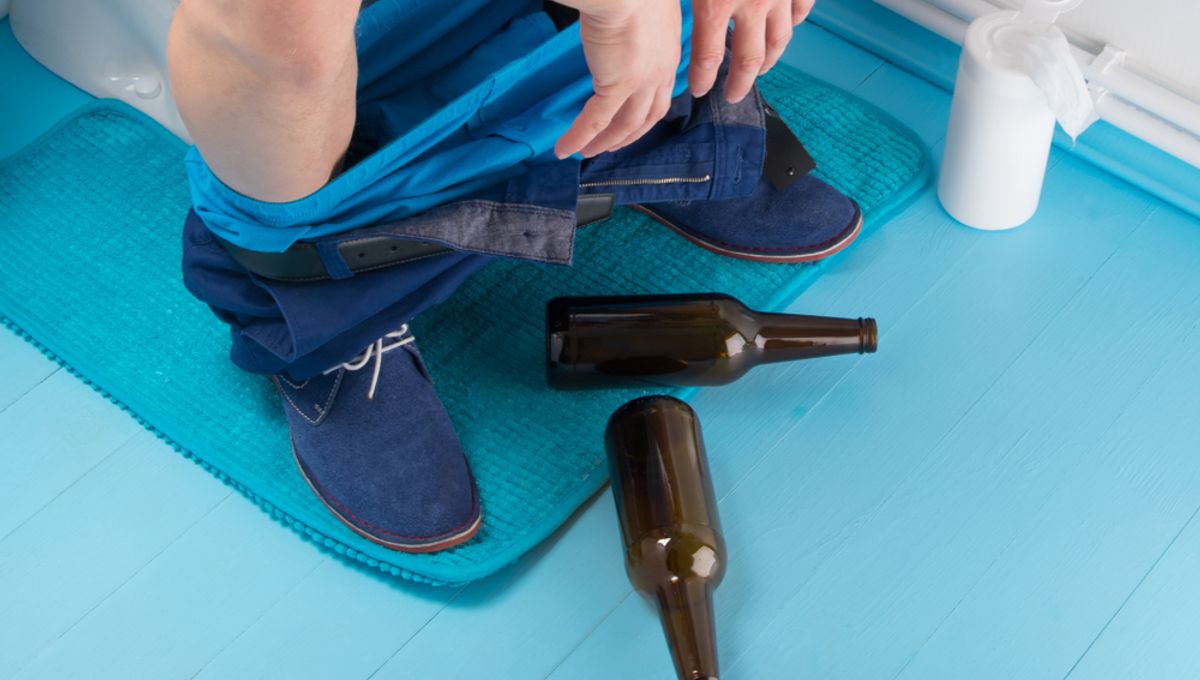
If you drink, you’re likely familiar with the ever-growing urge to urinate while getting tipsy. Your friends may drunkenly exclaim that you’re “breaking the seal” upon your first bathroom trip – but your bladder, of course, doesn’t have an actual “seal” that’s broken by your first pee of the night. So what’s actually going on here?
It all starts with one hormone with many names: take your pick from vasopressin (VP), antidiuretic hormone (ADH), or arginine vasopressin (AVP). For your sake, we’ll just call it ADH.
A diuretic is a substance that makes you need to pee – so as the “antidiuretic hormone” name suggests, ADH inhibits this effect and stops you peeing as much. ADH is a neuropeptide hormone. Peptides are chains of amino acids and hormones are a type of chemical messenger in your body, and “neuro” indicates that ADH is produced by neurons.
ADH begins its life as a larger chain of amino acids made in the hypothalamus, in the brain. The gene containing the body’s recipe for this larger chain is called arginine vasopressin gene (AVP) and is present on chromosome 20. The large chain is trimmed to produce active ADH, which is stored in the pituitary gland.
When you need to conserve water and/or urinate less (for example, to stave off dehydration or prevent bed wetting), ADH is released from the pituitary gland, making the kidneys re-absorb more water. Therefore, resulting in less urine.
However, this is where alcohol messes things up, inhibiting the release of ADH. Multiple studies state that this is due to alcohol (aka ethanol) reducing the activity of calcium channels in pituitary gland neurons, which in turn decreases ADH release. This means that ADH isn’t around to hold back the tide of pint-induced pee.
Speaking of pints, how many do you typically knock back on a night out? Think about the volume of liquid entering your body – what goes in must come out, and ADH can’t really help you out much when that said liquid is alcohol.
Also, think about your mixer of choice. If you’re partial to a Jägerbomb or rum and coke, we’ve got bad news: caffeine is a diuretic, which often doesn’t mix well with the reduced levels of antidiuretic hormone.
Alcohol is also a bladder irritant, as is caffeine. This can affect the detrusor muscle in the bladder wall, which contracts to let urine out. Drinking too much alcohol and caffeine are known factors behind detrusor muscles contracting too much, leading to an urgent need to pee.
So why does the urge to constantly pee kick in after a couple of rounds rather than instantly after your first drink? Around 20 percent of alcohol is absorbed into the bloodstream via the stomach. The rest is absorbed via the small intestine, which has more surface area and therefore absorbs it faster. However, it can take a little longer for the alcohol to get here due to the pyloric sphincter closing to allow the digestion of food in the stomach, preventing alcohol from passing quickly into the small intestine and slowing its absorption into the bloodstream.
Have fun, stay hydrated, and keep an eye on the bathroom queue!
All “explainer” articles are confirmed by fact checkers to be correct at time of publishing. Text, images, and links may be edited, removed, or added to at a later date to keep information current.
Source Link: Breaking The Seal: Why Does Alcohol Make You Pee So Much?